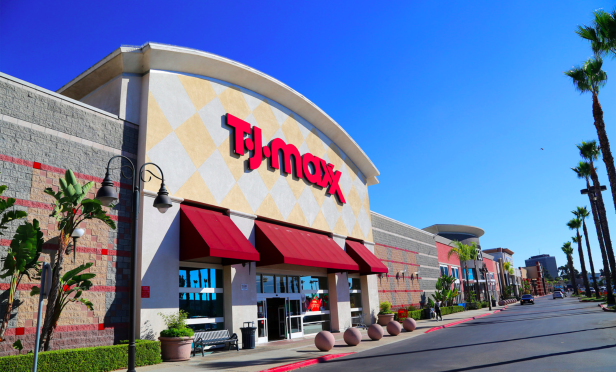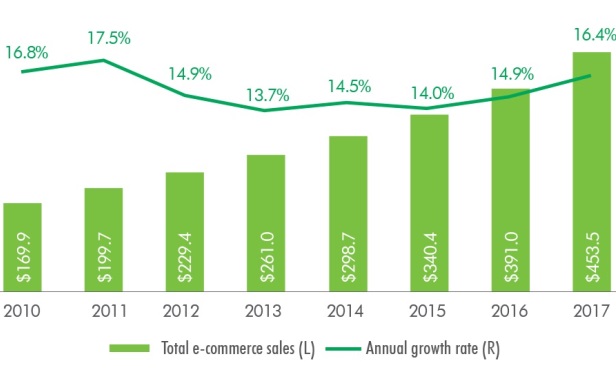 Phil Lavoie, COO at Gotham Organization
Phil Lavoie, COO at Gotham Organization
The U.S. retail industry in 2018 was marked by a variety of key trends, including a rise in experiential retail, steady closure rates among physical retail chains, and ongoing popularity of subscription-based e-commerce verticals. While brick and mortar stores, from mom-and-pop shops to major retail brands, continued to experience a lag in retail activity, one area in particular emerged as one of the industry's most successful case studies—food halls.
As developers seek ways to mitigate the downward trend of traditional retail activity, food halls emerged, and in my estimation, will remain, a viable solution in 2019, spurring on-site activity among consumers despite e-commerce dominance via online shopping. While research shows that digital shopping leads brick-and-mortar shopping activity among consumers, food halls satisfy a variety of intrinsic shopping desires that e-commerce simply cannot accommodate. According to data from the U.S. Department of Agriculture, millennials spend 44% of their food-allotted budget on eating out, with 52% of adults looking to try new cuisines. In addition, 61% of adults report that they would prefer to spend money on experiences, including eating out, over purchasing a physical item from a store.
Over the past five years, food hall concepts across the United States have opened at an unprecedented speed. New data from Cushman & Wakefield's latest food hall report predicts that at the current rate, the food hall marketplace will triple in size by 2020.
Real estate markets, particularly in primary markets such as New York City, Atlanta and Washington D.C., continue to witness an increase in the integration of residential, office and retail components within a single project, providing a comprehensive selection of offerings for visitors and residents. With some food halls serving as anchor tenants within noted residential developments, the concept introduces an added layer of attractiveness among developers, who leverage these spaces as amenities.
Serving as the COO of Gotham Organization, a New York-based real estate owner, developer and management company, I've had the pleasure of overseeing the company's management of this model at two of our most noted residential projects in New York. Gotham West, located in Manhattan, and The Ashland, located in Brooklyn, are each anchored by respective food halls, each of which house several critically acclaimed food vendors. The halls have been integral to not only attracting and retaining building residents, but also providing a needed offering for local area residents and workers.
Food halls, especially here in New York, have emerged as an unexpected success in the local market, as the city and outer boroughs work to counteract the adverse effects of retail vacancies. New York's dining scene remains at the forefront, and both Gotham West Market and Gotham Market at the Ashland are case studies that have elevated our brand while also appealing to visitors looking for a unique dining experience.
As a business enterprise, food halls are inherently positioned to be more profitable and sustainable than many traditional standalone retail concepts and dining destinations. According to data from Toast Restaurant Technology, 15% of restaurant owners name high operating and food costs as the biggest challenges to their overall success. In additional to being viable business models for developers, food halls also present flexible and lower-cost rent options for restauranteurs.
With retail asking rents finally beginning to level out, food halls present a fiscally beneficial solution for dining institutions. Nationally, we're seeing an influx of new food vendors that view food halls as a more affordable option in comparison to standalone dining facilities, helping to eliminate the barrier of entry for new food concepts. While many of the operators in our markets are spinoffs of existing well-known restaurants, we make a point of being an incubator for new concepts to get off the ground. This has allowed some amazing restaurants to come to life, like Corner Slice in our Gotham West Market, which makes one of the best slices you can buy in the city.
While savvy consumers will continue to engage with products and experiences across a variety of retail channels, the dining industry will remain a constant and steady aspect of the retail industry throughout 2019 and beyond. With over 300 food halls expected to be operation in the United States by 2020, this trend is a proven retail concept that many developers will be considering for new projects.
Phil Lavoie is the COO of the real estate firm Gotham Organization. The views expressed in this article are the author's own and not those of ALM's real estate media group.





